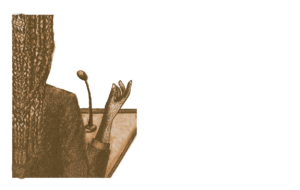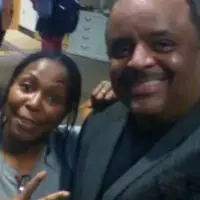I interviewed revered African American newsman Roland Martin ahead of his February 27, 2018, Canisius College address. Martin put forth that mainstream news media only recognizes race as a factor when it is overt; “a hood, a burning cross, or mention of the ‘N’ word. They don’t even realize how nuanced it is. But black folks, we understand it quite well,” and as a result are able to provide more context where it is needed.
In the 80’s, when I still had the knees for it, I made my living selling door-to-door. In a South Buffalo neighborhood, a white kid bicycled past me and yelled “N—r!” His foot slipped off the pedal, stopping him within an arm’s length. “Oh, sorry,” he offered nervously while finding his balance, then rode on.
Buffalo business exec and politico Larry Quinn recently said “I don’t see the U.S. or our local governments having a built-in mission of discrimination… I think we have to get past the idea that there is a force in the country that wants to subjugate [blacks].” It isn’t too far-fetched to imagine that South Buffalo kid, today a middle management muckety-muck, when the agreed-upon diversity hiring goal between N.Y. and builders of South Buffalo’s SolarCity was lowered from 25% to 15%. No legislative edict here. Still, it takes a nuanced perspective to point out that blacks were used as a bargaining chip for a tax break, then that agreement was quietly abandoned. It would be disingenuous to insist my encounter with that young bicyclist was categorically unrelated.
In 1977, ABC premiered the series “Roots,” chronicling American slavery. Afterwards, WKBW asked “it’s eleven o’clock, do you know where your children are?”, and the opening news story was local reaction to the show. A white reporter sitting with a black family asked the very young son, “after watching this, if a white friend dropped his hat would you pick it up?” The boy thought for a moment, then hesitantly said, “… no.”
Really? That’s the story here? “Watch out Buffalo, it’s the 1965 Watts race riots all over again. Hide the forks and knives from your kitchen staff.” Did WKBW even have a black segment producer or reporter back then? What would that journalist have asked?
A memorial opened in Alabama in Spring 2018 making stark documentation of the lynchings of more than 4,000 blacks right here on American soil. Once again, the media coverage of this event was way too slanted towards how difficult and uncomfortable the installation is for the area’s white people. There is an unbroken line between slavery, lynchings, and the 2012 Florida episode where white Michael Dunn shot ten times into a car full of black teens for playing their music too loud and it takes black media to draw it. Playing their music would be today’s equivalent of the past’s go-to, “he looked at a white woman.” Not acquiescing to their obvious place in the power hierarchy at Dunn’s first command made the teens today’s equivalent of “troublesome negroes.” Minutes after the incident, resting assured in his impunity, Dunn was at home having pizza. Given that the first jury came back a hung jury, this installation is the very answer to people who still wonder out loud “what’s slavery got to do with me today?” That’s the story here.
I am acquainted with Sylvester Monroe, who was most recently an editor at The Washington Post. I did work for him at the Atlanta Journal-Constitution and Ebony magazine. He covered the O.J. Simpson trial for Time magazine, and appeared on ABC’s Nightline the night the verdict was announced. Years later he wrote a piece revisiting that infamous not guilty verdict explaining blacks weren’t unsympathetic about the loss of two lives. They were elated to witness the twist of a rich black man maneuvering the legal system to his own advantage.
Ethan Couch, 2013’s “affluenza teen” stole beer from Walmart, drove on a suspended license, killed four people and injured five others, and with the help of his rich parents was sentenced to only therapy and ten years probation. If whites could have stopped feeling so betrayed by the O.J. verdict for five minutes, they would have heard Monroe’s herald; “money trumps even the privilege of race. Unless you have lots of it, the legal system isn’t your friend either and black media has been trying to tell you that for decades.”
A (white) repo-man came for my very first new vehicle, a Suzuki Grand Vitara. I phoned the finance company to ask what happens next. “Report your car stolen,” they directed me, “whoever that guy was, he’s not with us.” Days later I was in a fog as police explained he was just some opportunistic independent car dealer who wrongly thought he could shake down the finance company for himself. They refused to acknowledge him so instead he traded my SUV to drug dealers for crack, no one knew where the car was, and the first thing out of my mouth was “wait, … white people do crack?”
Crack was being reported as an entirely black phenomenon then. My brain was stuck at that first seemingly fallacious premise, that my missing car had something to do with a white person smoking crack.
Fast forward to New York Senator Mark Golden’s January statement about today’s opioid epidemic. “It’s not a ghetto drug. It’s happening to doctors’ kids.” The governor of Maine opined in 2016 “these are guys with the name D-Money, Smoothie, Shifty – these types of guys – they come from Connecticut and New York, … they sell their heroin, they go back home … Incidentally, half the time they impregnate a young white girl before they leave …” You heard it. Blacks, predators, incarceration. Whites, victims, Narcan, and money for treatment programs. Were it not for Michelle Alexander’s book The New Jim Crow and other critiques like it, those statements would have gone as unchecked as someone calling Dr. Ben Carson “a credit to his race” in the 1950’s.
Roland Martin said white people, without black media representation, don’t recognize the subtleties and nuances of racism. What I’m hoping to get across to white audiences is the nuanced ways that racism cheats you too. If instead of locking black people up left and right during crack’s heyday we were investing in understanding more about the science of addiction, imagine how differently the wheel of fortune would be spinning for thousands of white people dying today of opiates. Imagine the amount of revenue NY state lost to SolarCity’s minority hiring tax bamboozle.
Black writers like me aren’t just out here “preaching to the choir.” We are trying to show all that if black lives don’t matter, under the right circumstances nobody’s life matters.

